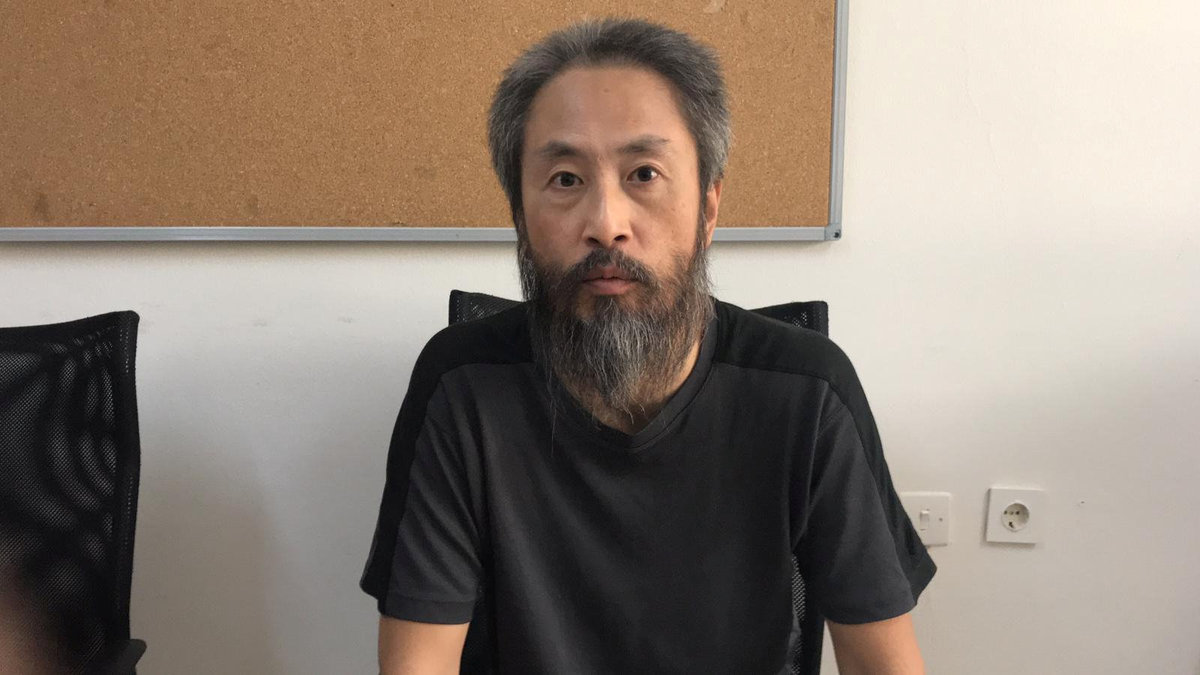Japan confirms release of journalist held in Syria


TOKYO - The Japanese government on Wednesday confirmed that a journalist kidnapped in Syria more than three years ago has been freed and is in Turkey.
"We have confirmed the safety of Jumpei Yasuda, who had been held captive in Syria since 2015," Japanese Foreign Minister Taro Kono told reporters. "He appears to be in good health. ... We're very glad he's safe."
Japanese officials said late on Tuesday they were trying to confirm reports that the 44-year-old freelancer had been freed.
Embassy officials visited him at an immigration center in Antakya in Turkey, and he is expected to return to Japan soon, after health checks.
Yasuda's wife Myu was appearing live on private station TV Asahi when Kono announced the news.
"Thank you. ... Thank you for praying for him and taking action," she said in tears.
"I want to see him in good shape. That's all I want," Yasuda's father had told reporters earlier in the day.
"I don't know how he is now, but I want to tell him he kept his chin up."
Yasuda was thought to have been seized by the group previously known as the al-Nusra Front, a former al-Qaida affiliate, in northern Syria.
However, Hayat Tahrir al-Sham, led by al-Qaida's former branch in Syria, denied any involvement in a statement on Tuesday.
Al-Qaida's former Syria affiliate was known as al-Nusra Front before it cut ties with the transnational jihadist network in 2016 and changed its name.
In August, videos emerged showing Yasuda and an Italian national, Alessandro Sandrini, appealing for their release. Both men wore orange outfits with armed, masked men standing behind them. The videos did not identify which group was holding the men or include specific demands.
The Syrian Observatory for Human Rights, a Britain-based war monitor, said on Tuesday that Yasuda was released under a Turkish-Qatari deal, with some sources saying a ransom had been paid.
But Japan's top government spokesman denied on Wednesday that any payment was involved. "That kind of thing never happened," Yoshihide Suga told reporters.
In 2015, militants from the Islamic State group beheaded Japanese war correspondent Kenji Goto and his friend Haruna Yukawa in Syria.
Tokyo was criticized for what detractors saw as its flatfooted response to the crisis at the time, including apparently missed opportunities to free both men.
Syria has been one of the most dangerous places for journalists since the conflict there began in March 2011, with dozens killed or kidnapped. Several journalists are still missing in Syria and their fates are unknown.
AP - REUTERS
































